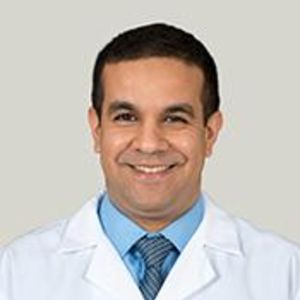On behalf of our residency training program, we welcome you to the Department of Anesthesia and Critical Care’s Web site. Many of your questions about our program and department can be answered right here. You also will find contact information for our residents and faculty, directions for the application process, and information about our residents and their achievements.
What to look for in a residency program
As medical students enter the Match process, they wonder what to look for in a residency program. Many factors must be considered: educational, geographical, personal, and logistical. For each individual the considerations are different. We suggest you look for a department that encourages you to realize your potential, broadens your horizons, and offers training to make you the best consultant anesthesiologist you can be.
We offer a unique training program for our residents, full of challenges and opportunities to meet those aforementioned goals. Challenge and opportunity are two important words in our department’s mission: we challenge our residents to maximize their potential, and we provide them with every opportunity to succeed. Below, we elaborate on several examples of our commitment.
Our Commitment to Education
We take pride in a didactic curriculum that emphasizes the critical thought process, rather than just regurgitation of facts. We have a journal club, key words case conferences, problem-based learning discussions, mock oral boards, subspecialty simulations, ultrasound training, and morbidity and mortality conferences. The didactics complement intraoperative teaching by our renowned faculty. For the last several years, > 98% of our residents have passed the written board examination. Several of our residents have passed board examinations in transesophageal echocardiography because of their efforts, and also because of the strength of our echocardiography rotation and our faculty’s mentoring. Residents also spend time shadowing the operating room coordinator to prepare them for the wide gamut of experiences they will face upon graduation.
There is more to resident education than just clinical work and didactics.
Our residents have made presentations at regional, national and international meetings; some serve in the resident component of the Illinois Society of Anesthesiologists, and several have been elected president of the component. Others participate as elected officers of the resident component of the American Society of Anesthesiologists, or have been awarded Medical Education Research, Innovation, Teaching and Scholarship (MERITS) scholarships. The department supports residents’ personal growth and achievement. We all benefit from their experiences when they share them with us.
Our Faculty
The faculty who teach in the operating rooms are the same people who present at the American Society of Anesthesiologists (ASA) annual meeting and at national and international meetings. Among them are present and past presidents of specialty societies (the ASA, the Society of Critical Care Anesthesiologists, and the Society of Obstetric Anesthesia and Perinatology), authors of book chapters and journal articles, and respected leaders in our field. Most importantly, they are excellent clinicians and educators—-and this is their primary responsibility. Being surrounded by such role models, our residents have a tremendous opportunity to be mentored by leaders in the specialty.
Our residents succeed after graduation. Many of our graduates who have settled into practice in the Midwest, especially in the Chicagoland area, serve as excellent resources, and they recruit from our graduates every year. We have a strong network of alumni across the nation, from New York to Hawaii. Our residents can rely on the connections of our graduates and our faculty to help find fellowships and employment opportunities. Other residents join some of the most competitive private practice groups in the nation and assume leadership positions within their groups. Residents interested in fellowships continue their training in competitive programs all over the country, routinely getting their top choice of a fellowship program. Whether it is academic practice, where they serve as fellowship and residency program directors, or in private practice, where they are the president of a group, our graduates are leaders in the field.
Other Perks of Training at the University of Chicago
Finally, we have the advantage of being in Chicago, one of the truly great cities in the world. Chicago has excellent restaurants, world-class art, opera, symphony and sporting events. The city has something for everyone, with a vibrant downtown, friendly citizens, and a gorgeous lakefront. You will have no problem finding things to do when you want to unwind from work.
We hope that we have answered some of the questions you might have regarding the University of Chicago residency program, and that you are interested in learning more. Please come and meet us! We encourage you to apply to our program, and meet our faculty and residents to a get a better sense of what makes us unique. We look forward to hearing from you.

Junaid Nizamuddin, M.D.
Program Director, Core Anesthesiology Residency Program